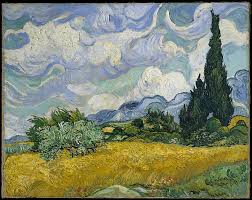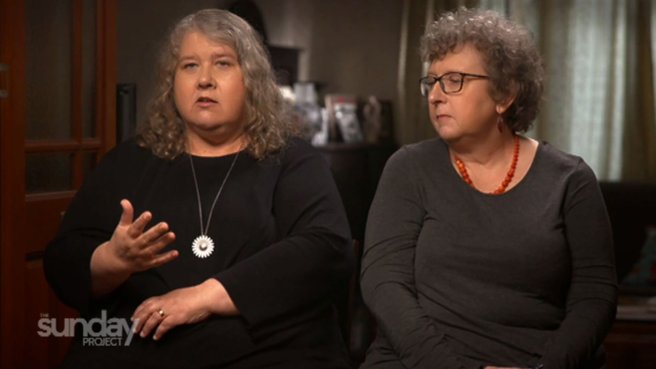Helen Hagemann @ the Fremantle Arts Centre: Our start will be in the Café at 12.45pm, then Room 3 to 2.45pm
Class to read an excerpt from To the Lighthouse by Virginia Woolf.
Writing Exercises and discussion will look at the “Passage of Time” in the
novel, and “shifts in time” in the short story.
TIME PASSES - 3.
"But what after all is night? A short space especially when darkness dims so soon, and so soon a bird sings, a cock crows, or a faint green quickens, like a turning leaf, in the hollow of the wave. Night, however, succeeds to night. The winter holds a pack of them in store and deals them equally, evenly, with indefatigable fingers. They lengthen; they darken. Some of them hold aloft clear planets, plates of brightness. The autumn trees, ravaged as they are, take on the flash of tattered flags kindling in the gloom of cool cathedral caves where gold letters on marble pages describe death in battle and how bones bleach and burn far away in Indian sands. The autumn trees gleam in the yellow moonlight, in the light of harvest moons, the light which mellows the energy of labour, and smooths the stubble, and brings the wave lapping blue to the shore."
 To the Lighthouse is a 1927 novel by Virginia Woolf. A landmark of high modernism, the novel centres on the Ramsays and their visits to the Isle of Skye in Scotland between 1910 and 1920.
Following and extending the tradition of modernist novelists like Marcel Proust and James Joyce, the plot of To the Lighthouse is secondary to its philosophical introspection. The novel includes little dialogue and almost no action; most of it is written as thoughts and observations. The novel recalls childhood emotions and highlights adult relationships. Among the book's many tropes and themes are those of loss, subjectivity, and the problem of perception.
In 1998, the Modern Library named To the Lighthouse No. 15 on its list of the 100 best English-language novels of the 20th century. In 2005, the novel was chosen by TIME magazine as one of the one hundred best English-language novels from 1923 to present. According to thegreatestbooks.org, a site which uses algorithms to numerically determine the best-received books, To the Lighthouse is the 21st most critically acclaimed work of fiction ever made.
To the Lighthouse is a 1927 novel by Virginia Woolf. A landmark of high modernism, the novel centres on the Ramsays and their visits to the Isle of Skye in Scotland between 1910 and 1920.
Following and extending the tradition of modernist novelists like Marcel Proust and James Joyce, the plot of To the Lighthouse is secondary to its philosophical introspection. The novel includes little dialogue and almost no action; most of it is written as thoughts and observations. The novel recalls childhood emotions and highlights adult relationships. Among the book's many tropes and themes are those of loss, subjectivity, and the problem of perception.
In 1998, the Modern Library named To the Lighthouse No. 15 on its list of the 100 best English-language novels of the 20th century. In 2005, the novel was chosen by TIME magazine as one of the one hundred best English-language novels from 1923 to present. According to thegreatestbooks.org, a site which uses algorithms to numerically determine the best-received books, To the Lighthouse is the 21st most critically acclaimed work of fiction ever made.
Adeline Virginia Woolf (25 January 1882 – 28 March 1941) was an English writer, and one of the foremost modernists of the twentieth century.
During the interwar period, Woolf was a significant figure in London literary society and a central figure in the influential Bloomsbury Group of intellectuals. Her most famous works include the novels Mrs Dalloway (1925), To the Lighthouse (1927) and Orlando (1928), and the book-length essay A Room of One's Own (1929), with its famous dictum, "A woman must have money and a room of her own if she is to write fiction."
"But what after all is night? A short space especially when darkness dims so soon, and so soon a bird sings, a cock crows, or a faint green quickens, like a turning leaf, in the hollow of the wave. Night, however, succeeds to night. The winter holds a pack of them in store and deals them equally, evenly, with indefatigable fingers. They lengthen; they darken. Some of them hold aloft clear planets, plates of brightness. The autumn trees, ravaged as they are, take on the flash of tattered flags kindling in the gloom of cool cathedral caves where gold letters on marble pages describe death in battle and how bones bleach and burn far away in Indian sands. The autumn trees gleam in the yellow moonlight, in the light of harvest moons, the light which mellows the energy of labour, and smooths the stubble, and brings the wave lapping blue to the shore."
 To the Lighthouse is a 1927 novel by Virginia Woolf. A landmark of high modernism, the novel centres on the Ramsays and their visits to the Isle of Skye in Scotland between 1910 and 1920.
Following and extending the tradition of modernist novelists like Marcel Proust and James Joyce, the plot of To the Lighthouse is secondary to its philosophical introspection. The novel includes little dialogue and almost no action; most of it is written as thoughts and observations. The novel recalls childhood emotions and highlights adult relationships. Among the book's many tropes and themes are those of loss, subjectivity, and the problem of perception.
In 1998, the Modern Library named To the Lighthouse No. 15 on its list of the 100 best English-language novels of the 20th century. In 2005, the novel was chosen by TIME magazine as one of the one hundred best English-language novels from 1923 to present. According to thegreatestbooks.org, a site which uses algorithms to numerically determine the best-received books, To the Lighthouse is the 21st most critically acclaimed work of fiction ever made.
To the Lighthouse is a 1927 novel by Virginia Woolf. A landmark of high modernism, the novel centres on the Ramsays and their visits to the Isle of Skye in Scotland between 1910 and 1920.
Following and extending the tradition of modernist novelists like Marcel Proust and James Joyce, the plot of To the Lighthouse is secondary to its philosophical introspection. The novel includes little dialogue and almost no action; most of it is written as thoughts and observations. The novel recalls childhood emotions and highlights adult relationships. Among the book's many tropes and themes are those of loss, subjectivity, and the problem of perception.
In 1998, the Modern Library named To the Lighthouse No. 15 on its list of the 100 best English-language novels of the 20th century. In 2005, the novel was chosen by TIME magazine as one of the one hundred best English-language novels from 1923 to present. According to thegreatestbooks.org, a site which uses algorithms to numerically determine the best-received books, To the Lighthouse is the 21st most critically acclaimed work of fiction ever made. Adeline Virginia Woolf (25 January 1882 – 28 March 1941) was an English writer, and one of the foremost modernists of the twentieth century.
During the interwar period, Woolf was a significant figure in London literary society and a central figure in the influential Bloomsbury Group of intellectuals. Her most famous works include the novels Mrs Dalloway (1925), To the Lighthouse (1927) and Orlando (1928), and the book-length essay A Room of One's Own (1929), with its famous dictum, "A woman must have money and a room of her own if she is to write fiction."
Resources: Wikipedia : http://en.wikipedia.org/wiki/To_the_Lighthouse
http://en.wikipedia.org/wiki/Virginia_Woolf


















